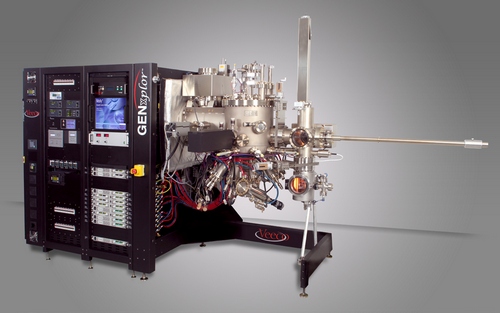Veeco Instruments announced that the University of Nottingham, United Kingdom, purchased two GENxplor™ R&D Molecular Beam Epitaxy (MBE) Systems for its School of Physics and Astronomy. The systems will enable the growth of high quality, large area layers of graphene and boron nitride for advanced electronic and optoelectronic applications.

Veeco's GENxplor™ R&D Molecular Beam Epitaxy (MBE) System. (LEDinside/ Veeco Instruments)
“Compared to other technologies, MBE better enables the high temperature and high uniformity deposition required to meet our stringent research demands,” said Dr. Sergei Novikov, Principal Research Fellow in the Faculty of Science at the University of Nottingham. “The GENxplor’s high-temperature substrate heater, open architecture and multi-system integration will allow us to grow materials in novel ways. It is our goal to develop electronic and optoelectronic devices, such as diodes and transistors, with improved performance by incorporating graphene and boron nitride materials.”
Graphene is a single molecule thick sheet of carbon atoms. High-quality graphene is very strong, light, nearly transparent, and an excellent conductor of heat and electricity. Boron nitride has an atomically smooth surface that is comparatively free of dangling bonds and charge traps.
“We are excited that the University of Nottingham will add two GENxplor systems to their Veeco MBE installed base,” commented Jim Northup, Vice President, General Manager of Veeco’s MBE Operations. “Nottingham’s purchase supports our belief that the GENxplor – the industry’s first fully-integrated MBE system designed to deposit high quality epitaxial layers on substrates up to 3” in diameter – is a revolutionary approach for the research community.”





